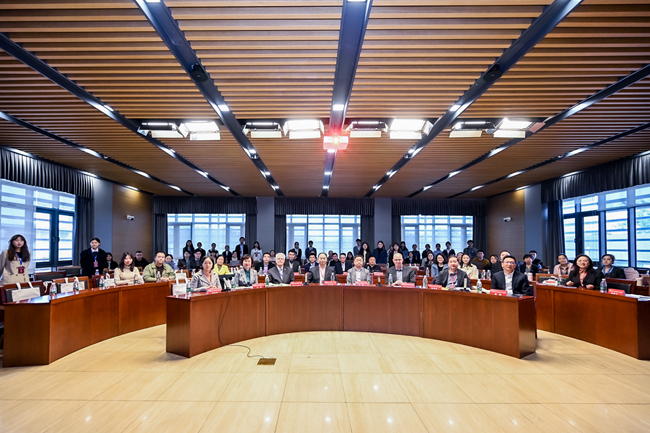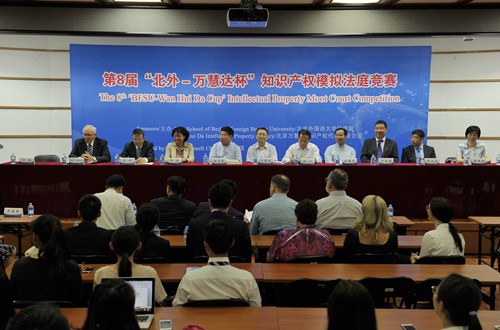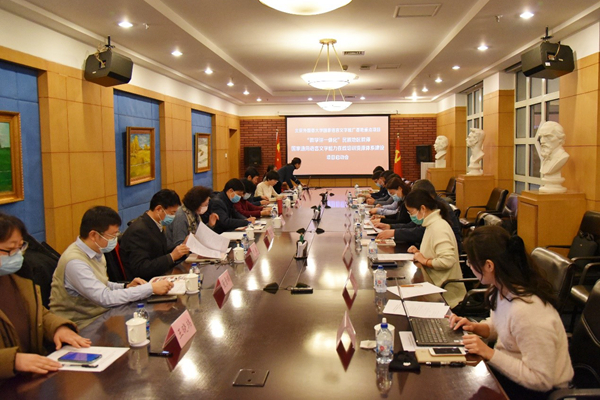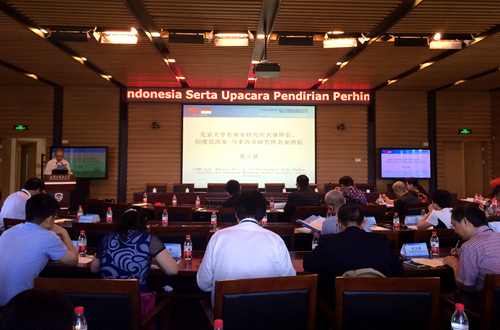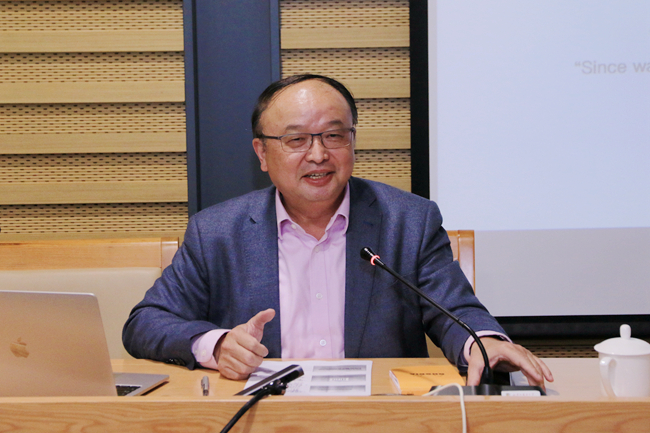Beiwai Held A High -end Forum In China Under The "Humanities Exchange Vision"
Beiwai Held A High -end Forum In China Under The "Humanities Exchange Vision"
On October 27, Beijing University of Foreign Languages held a high -end forum in China under the
On October 27, Beijing University of Foreign Languages held a high -end forum in China under the "Humanities Exchange Vision". The forum is organized by the Beijing School of English and co -organized by the Editorial Department of the American Research Institute of the Chinese Academy of Social Sciences. Wang Dinghua, Secretary of the Party Committee of Beiwai, Ni Feng, Secretary of the Party Committee and Director of the American Institute of the Chinese Academy of Social Sciences, Zhao Mei, deputy editor -in -chief of the United States Research, and Professor David Lantapi, senior professor of Professor Dai Lantu, senior international research college of John Hopkins University in the United States David, Ben Chapel (Ben), director of the American Research Department of the University of Kansas, and 80 experts, scholars, teachers and students from Tsinghua University, Peking University, Renmin University of China, Fudan University, Beijing Language University, and Beiwai Representatives participated in the forum. The forum was chaired by Li Liwen, director of the Beijing Waper Academic Affairs Office, and Li Shengqi, deputy dean of the School of Special English.
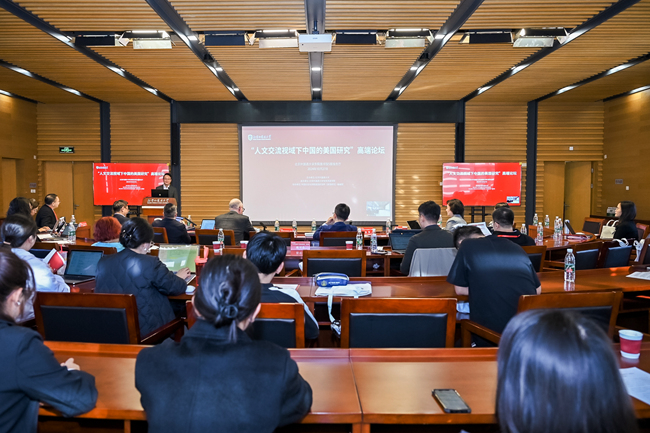
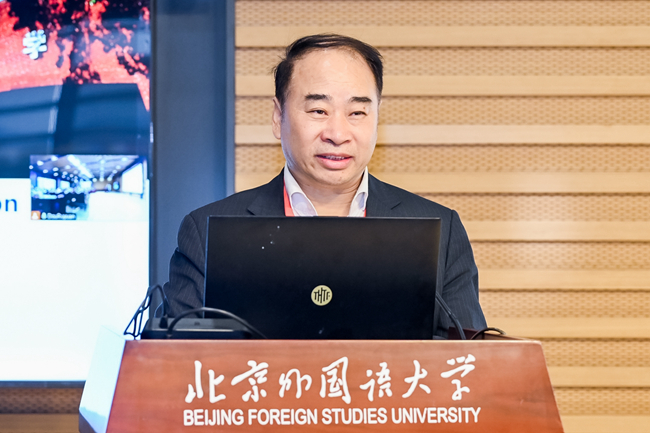
Wang Dinghua made a keynote speech entitled "Sino -US Higher Education Cooperation and Sino -US relations". He pointed out that educational cooperation and exchanges play the fundamental role of "stabilizers" and "adhesives" in international relations, and are regarded as the fourth dimension of politics, economy, and military in foreign policy. When the impact of education on geopolitics and other fields has deepened, participating in global education governance has become the stage of diplomatic weights of national strategies, a stage of multilateral relations, and a "barometer" for international competition. At present, Sino -US relations are complicated, and higher education cooperation can play an important role. Sino -US higher education cooperation also faces unprecedented challenges. In this context, strengthen the conversation between Sino -US higher education, carry forward positive factors, overcome negative effects, and then improve the effectiveness of global education governance.
From the past, status quo and prospects, Wang Dinghua made an in -depth explanation through three aspects: "education in diplomacy", "education for diplomacy" and "education that transcended diplomacy". He comprehensively summarized the existing achievements of Sino -US higher education cooperation, and pointed out that Sino -US relations have peaks and low valleys. Humanistic communication, as one of the pillars of Sino -US relations, has played a role of "booster" for a long time. In the past 45 years, China and the United States have made great progress in exchanges, cooperative schools, and joint scientific research. Based on the moment, Wang Dinghua analyzed the problems and difficulties faced by the current Sino -US higher education cooperation. He said that when China -US relations encounter challenges, they should pay more attention to the diplomatic value of Sino -US higher education cooperation. Facing the future, Wang Dinghua put forward five suggestions on strengthening the exchange and cooperation between Sino -US higher education: first, to build a new pattern and form a new concept; the other is to focus on the development of young students at the level of young students; the third is to create an innovative Sino -US cooperation project; Strengthen the study of higher education in China and the United States; the fifth is to change the way Chinese media propaganda, strengthen international communication, and promote mutual understanding.
Ni Feng made a keynote speech entitled "The 2024 American Election and Sino -US relations", which explained the position of the US Democratic Party and the Republican Party and the logic behind them. The influence, and put forward a strategy of response. Lamples sorted out the development of Sino -US relations since the establishment of diplomatic relations, and emphasized the important role of humanistic exchanges in promoting the healthy development of bilateral relations. Ben Chaper explained the importance of race, immigration and identity in American research from the aspects of US Democratic and Republicans' attitudes towards immigration. Zhao Mei listed the iconic figures and events in the exchange of education in China and the United States, and explained the important contributions of students staying in the United States at different historical stages to the development of Chinese social development and humanistic exchanges between China and the United States.
Jia Lieying, Dean of the School of International Relations of Beijing Language University, Qi Haixia, deputy dean of the School of International Relations of Tsinghua University, Li Wei, deputy dean of the School of International Relations of Renmin University of China, Zhao Chen, director of the International Research Office of the European Institute of Chinese Academy of Social Sciences, and Tsinghua University Global Zhao Kejin, deputy dean of the Co -Development Research Institute, Xie Tao, dean of the Beijing Institute of International Relations, Zhao Minghao, Deputy Director of the American Research Center of Fudan University, Ji Dalei, Associate Professor of Peking University School of International Relations, Qi Haotian, assistant professor, and Deputy Deputy Professor of International Political Research on Peking University Zhuang Junju, editor and director, and Cai Hong, director of the "International Forum" editorial department, conducted in -depth discussions on American research under the current humanistic exchange threshold from different perspectives. Wang Zhanpeng, deputy dean of the North Wai and Global Governance Higher Research Institute, fully affirmed the insights made by experts and scholars in the concluding speech. He said that the high -end forum is an academic feast of ideological exchanges, which will greatly promote the continuous development of research on North and US research.
